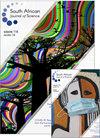为博士工作“培训”还是“教育”?——这就是问题所在:非洲博士培训和高等教育综述
IF 1.5
4区 综合性期刊
Q2 MULTIDISCIPLINARY SCIENCES
引用次数: 0
摘要
非洲的博士培训和高等教育对于高等教育的转型和非殖民化既及时又至关重要。一位上了年纪的教授和越来越多进入非洲学术界的年轻、更新和经验不足的学者的结合,使这本书变得更加挑剔。它深思熟虑地提供了关于非洲各地博士培训的不同见解,使读者能够获得独特的话语和实践,以指导博士支持,这是其他类似出版物所没有的。这本书的及时性还在于它对高等教育在经济发展中需要发挥的作用的贡献。在非洲,高等教育可以说比以往更加成为确保整个社会经济发展、创新和必要的社会政治进步的希望之一。2在这种迫切需要的背景下,博士工作当然至关重要,因为正是通过它,才能找到一个知情的知识库,能够应对当地和全球的挑战。作为一个政治项目,这本书也很重要。正如一些人正确地认为的那样,伪装在全球化和/或国际化等新自由主义话语中,前殖民者似乎已经成功控制并在某种意义上塑造了非洲大陆的高等教育。3要求非洲人收回知识领域,重新定义并将其定位在当地的呼声震耳欲聋。4在某些方面,这本书代表了对这些呼吁的回应。这本书以所谓的博士培训为重点,以符合非洲需求和背景的方式探讨了这一主题,从而振兴了非洲的高等教育。尽管这本书在最近引起了人们的关注,但它似乎得到了粗略的关注,其中一个方面是需要继续解构在转型和非殖民化的高等教育背景下产生知识意味着什么。5更具体地说,鉴于这本书的主题,读者如果能深入讨论一位候选人的工作需要在当地做出回应,同时又具有全球相关性,那么对其博士生导师可能产生的影响,将大有裨益。迫切需要本文章由计算机程序翻译,如有差异,请以英文原文为准。
To ‘train’ or to ‘educate’ for doctoral work? – that is the question: A review of Doctoral Training and Higher Education in Africa
Doctoral Training and Higher Education in Africa is both timely and essential for a transforming and decolonising higher education. A combination of an ageing professoriate and a growing number of younger, newer and less experienced academics entering academia in Africa 1 make this book even more critical. Its deliberateness in offering varying insights on doctoral training from across Africa enables the reader access to unique discourses and practices that guide doctoral support in ways that other similar publications on the subject have not. The timeliness of the book also lies in its contribution to the role higher education needs to play in economic development. Africa is a context in which, more than before, higher education can be said to be increasingly becoming one of the hopes for ensuring economic development, innovation and the necessary socio-political advancement for society at large. 2 Doctoral work is certainly critical in the context of such imperatives, for it is through it that an informed knowledge base equipped to tackle local and global challenges could be found. The book is also critical as a political project. As some will rightly argue, disguised in neo-liberal discourses such as globalisation and/or internationalisation, former colonisers seem to have managed to control, and in some sense shape, higher education on the African continent. 3 Calls for Africans to take back knowledge domains, redefine and locate them within the local have been deafening. 4 In some respects, this book represents a response to such calls. Focusing on what it calls doctoral training, the book engages with the subject matter in ways that fit distinctly African needs and contexts, thereby revitalising African higher education. One of the aspects that seems to have received cursory attention in the book, despite the attention it has attracted in the recent past, is the need to continue to deconstruct what it means to generate knowledge in a transforming and decolonialising higher education context. 5 More specifically, given the subject of the book, it would have benefitted a reader to be exposed to an extended discussion on the possible implications for doctoral supervision of a candidate whose work needs to be locally responsive, while globally relevant. There is urgency for
求助全文
通过发布文献求助,成功后即可免费获取论文全文。
去求助
来源期刊

South African Journal of Science
综合性期刊-综合性期刊
CiteScore
3.20
自引率
4.20%
发文量
131
审稿时长
1 months
期刊介绍:
The South African Journal of Science is a multidisciplinary journal published bimonthly by the Academy of Science of South Africa. Our mandate is to publish original research with an interdisciplinary or regional focus, which will interest readers from more than one discipline, and to provide a forum for discussion of news and developments in research and higher education. Authors are requested to write their papers and reports in a manner and style that is intelligible to specialists and non-specialists alike. Research contributions, which are peer reviewed, are of three kinds: Review Articles, Research Articles and Research Letters.
 求助内容:
求助内容: 应助结果提醒方式:
应助结果提醒方式:


